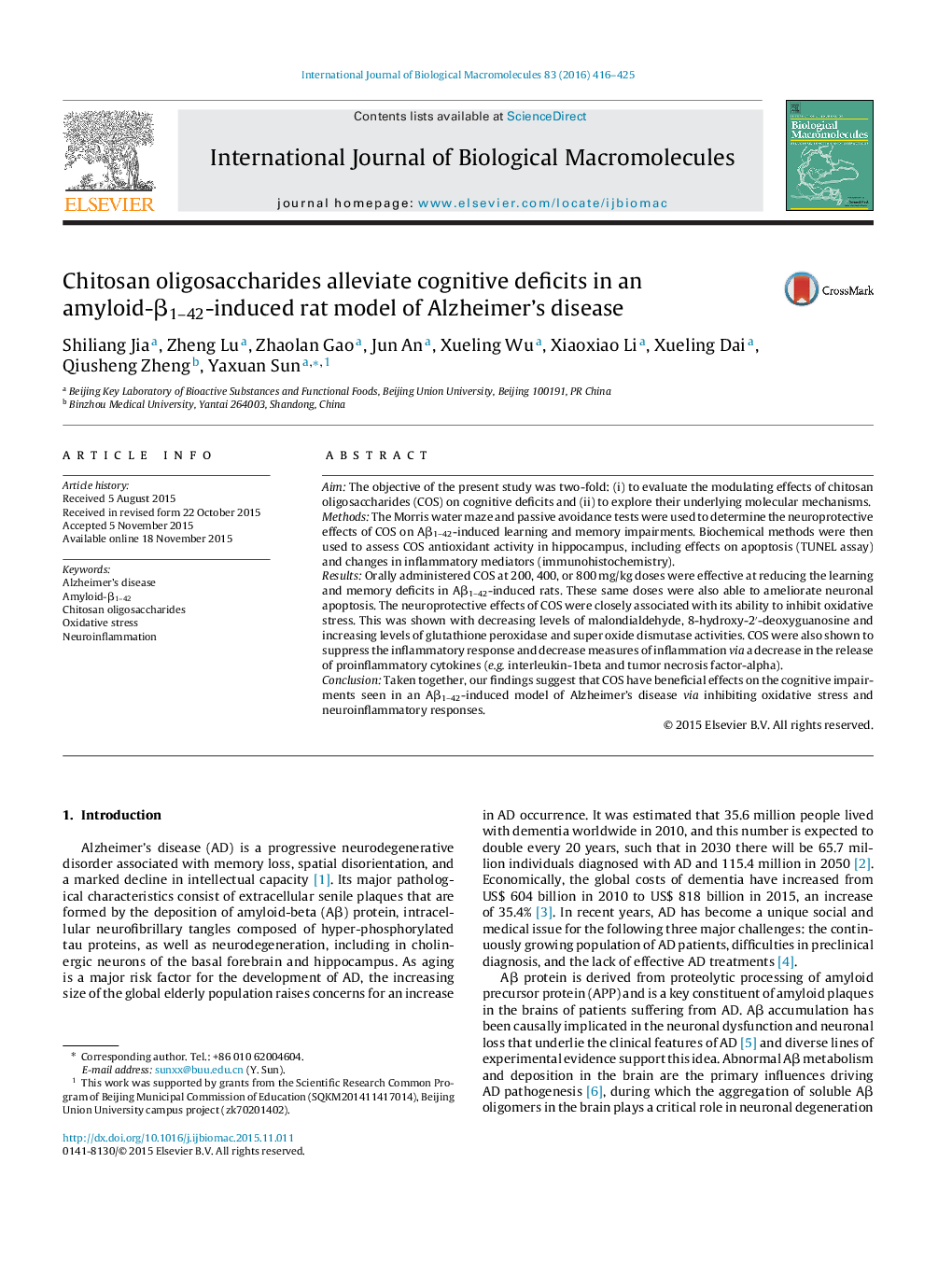| Article ID | Journal | Published Year | Pages | File Type |
|---|---|---|---|---|
| 1986084 | International Journal of Biological Macromolecules | 2016 | 10 Pages |
AimThe objective of the present study was two-fold: (i) to evaluate the modulating effects of chitosan oligosaccharides (COS) on cognitive deficits and (ii) to explore their underlying molecular mechanisms.MethodsThe Morris water maze and passive avoidance tests were used to determine the neuroprotective effects of COS on Aβ1–42-induced learning and memory impairments. Biochemical methods were then used to assess COS antioxidant activity in hippocampus, including effects on apoptosis (TUNEL assay) and changes in inflammatory mediators (immunohistochemistry).ResultsOrally administered COS at 200, 400, or 800 mg/kg doses were effective at reducing the learning and memory deficits in Aβ1–42-induced rats. These same doses were also able to ameliorate neuronal apoptosis. The neuroprotective effects of COS were closely associated with its ability to inhibit oxidative stress. This was shown with decreasing levels of malondialdehyde, 8-hydroxy-2′-deoxyguanosine and increasing levels of glutathione peroxidase and super oxide dismutase activities. COS were also shown to suppress the inflammatory response and decrease measures of inflammation via a decrease in the release of proinflammatory cytokines (e.g. interleukin-1beta and tumor necrosis factor-alpha).ConclusionTaken together, our findings suggest that COS have beneficial effects on the cognitive impairments seen in an Aβ1–42-induced model of Alzheimer's disease via inhibiting oxidative stress and neuroinflammatory responses.
